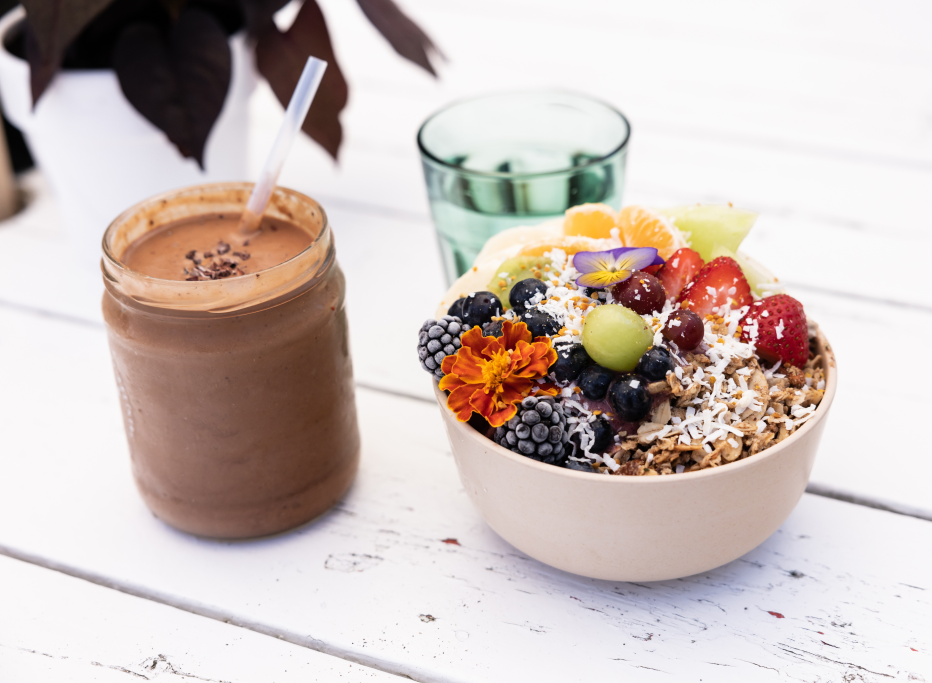7 Questions to Ask When Shopping for Protein Supplements

In an ideal world, we’d get all the protein we need from whole foods sources. But in the real world, that sometimes feels like eating way too much chicken or chickpeas.
Protein supplements are a convenient, efficient way to meet your daily protein needs, but finding something you can trust is a challenge. Here are seven questions to ask yourself when choosing a high-quality protein supplement.
1. What Is the Protein Source?
Not only are there a ton of brands and forms of protein supplements, but there are multiple types of protein to choose from. Whether you choose plant-based or whey-based mostly depends on your dietary and taste preferences.
“Both plant-based protein powders and whey-based powders are a great quality supplement,” says Kylie Morse, RD, dietitian for the Fit Body app. “Many people choose based on their preference for the consumption of animal products or not, but some prefer the taste or texture of one vs the other.”
But when it comes to whey supplements, there is a difference between isolate and concentrate. “A whey isolate undergoes more processing to remove the carbs (lactose) and fats from the milk to yield a more protein-dense, highly bioavailable supplement that’s also lower in calories,” Morse says. “Because of this extra processing, a whey isolate is also far better tolerated by people with lactose intolerance, as the majority of lactose is removed from the product.”
2. Is It a Complete Protein?
Protein is made up of different amino acids. And while your body can produce most of them, there are 9 they can’t. These are considered essential amino acids and need to be acquired through your diet. If a food contains all 9 of them, it’s a complete protein.
“All nine essential amino acids are needed for muscle protein synthesis and muscle repair after your workouts,” Morse says. “A whey-based protein supplement is a naturally complete protein, but some plant-based proteins are not.”
She recommends making sure your plant-based supplement contains a blend of sources (ex. pea, bean, rice, hemp) to provide a complete protein supplement that supports the growth and maintenance of lean body mass.
3. Has It Been Tested by an Independent Lab?
One of the most important questions to ask in the super-saturated supplement market is if it’s been tested and certified by an independent lab. That’s because the U.S. Food and Drug Administration (FDA) doesn’t test the effectiveness, safety or purity of nutritional supplements.
Looking for proof of third-party testing makes sense whether you’re an elite athlete or a weekend warrior to make sure there are no banned substances or harmful chemicals in your supplement.
The gold standard of supplement testing is the NSF’s Contents Certified mark. As an independent testing process, they test products to make sure that supplements don’t contain unsafe levels of contaminants, prohibited substances or masking agents, and certify that what’s on the label matches what’s in the product. For a list of certified products or to check if your preferred brand is safe, visit the NSF website.
4. What’s the Protein to Calorie Ratio?
The point of a protein supplement is to provide, well, protein. But some companies pad their product with carbs or other fillers to make it tastier and cheaper to produce.
A good rule of thumb: “Look for a protein powder that contains 20 to 25 grams of protein per serving to ensure that you are getting an optimal amount of protein for muscle protein synthesis post-workout,” Morse says. “If your goal is fat loss, aim for a protein supplement with about 100 to 150 calories per serving.”
One caveat to this is supplements designed for bulking or gaining weight. These generally have more carbs, but their protein content should still be high.

5. How Much Sugar Does It Contain?
While sugar isn’t necessary in protein powder, most people appreciate a little sweetness in their post-workout shake. But you also don’t want there to be too much sugar. Choose a protein powder that has less than 5 grams of added sugar per serving, especially if your goal is fat loss or better overall health, Morse says.
6. What Are the Ingredients?
Just like when examining the label on a pre-packaged food, you want to scope out the list of ingredients of any protein supplement you’re considering. Focus on simple, high-quality ingredients that can be understood and steer clear of artificial flavors and fillers.
Also, the protein source(s) should be at the front of the list (meaning they comprise the highest percentage of the product) with other ingredients listed last. And if reading all the complex, science-y names gives you flashbacks to high school chemistry, skip it.
7. Do You Enjoy the Flavor?
A protein supplement could answer all of the above questions perfectly, but ultimately, if you don’t like the taste, you’re not going to want to use it. And you don’t want to have to invest in an expensive protein powder if you’re just going to throw it out.
First, start with flavors you know you like, or ask your gym buddy what their favorite brand and flavors are. Then, check the reviews — both on the company’s site and other third-party vendors their use for their products. Lastly, see if they offer samples. You generally still need to pay for them, but if you don’t like one, you’re usually only out a few bucks (vs. having to commit to a full tub).
RELATED:





